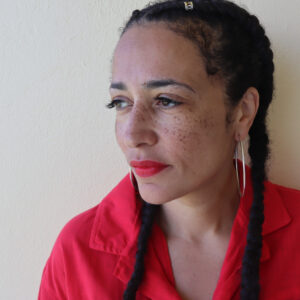 “Conscience and Consciousness: A Craft Talk for the People and the Person”
“Conscience and Consciousness: A Craft Talk for the People and the Person”
Zadie Smith | 2024
Acclaimed novelist, essayist and short story writer, Zadie Smith delivered the 11th Alex Fountain Memorial Lecture on November 6, 2024 in Alumni Hall.
read a student’s perspective
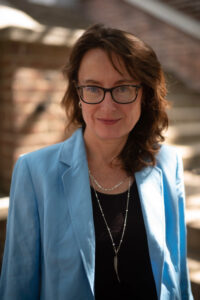
“Re-Translating Homer: Why it Matters”
Emily Wilson | 2024
Emily Wilson, the first woman to publish an English translation of Homer’s Odyssey in 2018 to huge acclaim, and who recently released her translation of The Iliad, delivered the 10th Alex Fountain Memorial Lecture in Alumni Hall on March 6, 2024.
read a student’s perspective
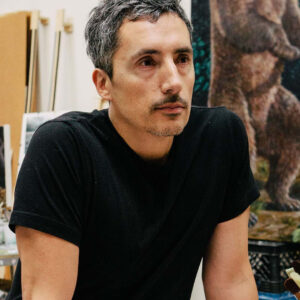
“Miss Chief in the Museum”
Kent Monkman | 2020
History is subjective. The dominant version of history upheld in museums on this continent is told from the perspective of the colonial settler cultures who projected their values and ideals onto the Indigenous people and landscape of North America. In his lecture on February 27, 2020, Cree artist Kent Monkman discussed his interventions in museums that have taken form as commissioned paintings, curated exhibitions, videos and site specific performances. He also discussed his commission for the Metropolitan Museum of Art, New York – two monumental history paintings for the Great Hall and the creation of a new performance piece.
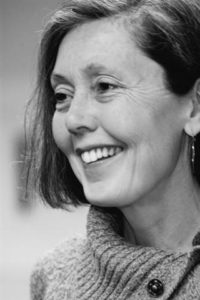
“Lecture on the History of Skywriting”
Anne Carson & Robert Currie | 2019
Internationally acclaimed Canadian poet, essayist, classical scholar and professor, Anne Carson, CM, together with her partner and collaborator Robert Currie, delivered the 8th Alex Fountain Memorial Lecture on January 23. Prof. Carson was the Recipient of the MacArthur Fellowship in 2000, the Guggenheim Fellowship, winner of the Governor General’s Award and the Lannan Literary Award and two-time winner of the prestigious Griffin Poetry Prize.
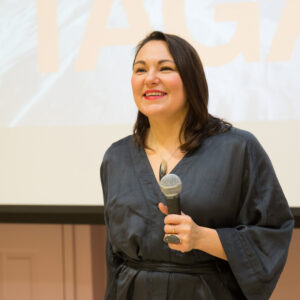
“Climate, Culture, and Collaboration”
Tanya Tagaq | 2017
In her lecture on November 30, Tagaq gave a personal talk about the geography and culture of Nunavut, bringing the topics covered back to our similarities, rather than our differences, as a human species. Tanya believes our impact on this earth as life forms has not been positive, and she will outlined ways that we can reconnect with each other, as well as with the earth.
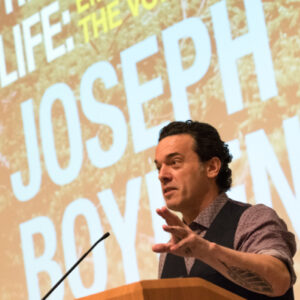
“This Writer’s Life: Embracing the Voices”
Joseph Boyden | Nov. 24, 2016
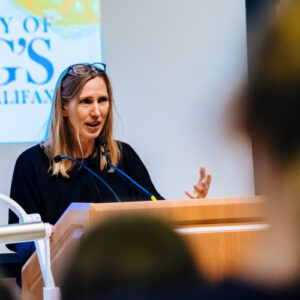
“If We Are Not Immortal: A Short Talk on Love, Death and the Writing Life”
Miriam Toews | Mar. 10, 2016
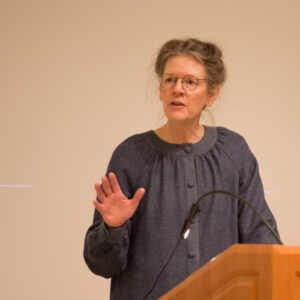 “What Meaning Is and Why It Matters”
“What Meaning Is and Why It Matters”
Dr. Jan Zwicky | 2015
What is meaning? We tend to associate it first and foremost with language and information. But attention to the experience of meaning shows the situation is more complex. On February 26, Jan Zwicky, the Canadian philosopher, poet, essayist, and musician spoke on meaning at the Fountain Memorial Lecture at King’s. The Order of Canada appointee has taught philosophy, English and the humanities at various universities and she is Professor Emerita at the University of Victoria. The experience of meaning, she says, involves the perception or comprehension of integrated wholes that are more than mere sums of parts. These integrated wholes can often be named without much difficulty, but our ability to discern them erodes under the press of demands to describe and analyze them. Such demands, however, are basic to 21st-century technocratic culture: articulate description and analysis are regarded as essential to intelligence. The consequence is that we, as members of this culture, are unable to take seriously our own experience of many complex integrated wholes: rivers, for example, forests, landscapes, nonhuman cultures of all kinds. Understanding what meaning is thus becomes a crucial political act if we are to appreciate ways the world actually is.
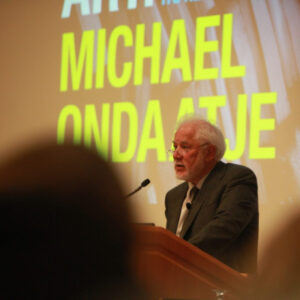
“Mongrel Art: A Discussion of Literature and its Neighbours”
Michael Ondaatje | Nov. 14, 2013
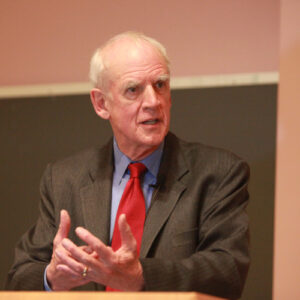 “Is Democracy in Danger?”
“Is Democracy in Danger?”
Dr. Charles Taylor | 2012
Canadian philosopher and world-renowned intellectual Charles Taylor delivered the Alex Fountain Memorial Lecture at the University of King’s College on November 6.
Taylor has spent most of his career at McGill University in Montreal. He has written 15 books, including Sources of the Self, The Malaise of Modernity, and A Secular Age, and numerous academic papers. He has also been active in politics, running for Parliament as an NDP candidate. He lost four times, including once to Pierre Trudeau in 1965.
Charles Taylor delivered the CBC’s Massey Lectures in 1991. More recently, he and Gerard Bouchard have worked together on the Bouchard-Taylor Commission on reasonable accommodation of religious minorities in Quebec.
In 2007 Charles Taylor was awarded the Templeton Prize for inquiry into the spiritual dimensions of life.
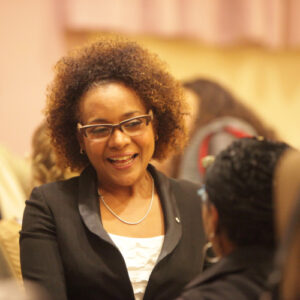 “Building Social Change: Locally and Globally”
“Building Social Change: Locally and Globally”
The Right Hon. Michaëlle Jean | 2011
Madame Jean was the 27th Governor General and Commander-in-Chief of Canada, serving from 2005 to 2010. Currently the UNESCO Special Envoy for Haiti and Co-President of the Michaëlle Jean Foundation, she is known as an articulate and impassioned speaker who advocates for national solidarity, equality and empowerment for young Canadians. Her lecture on October 24, “Building Social Change Locally and Globally,” explored her belief that young people must lead the way in promoting an ethic of solidarity in Canada and across the globe.
 Fred and Elizabeth Fountain and their daughter Katharine established the Alex Fountain Memorial Lecture in 2011 to honour Alex, who died in August 2009. This exceptional gift to the college enables the King’s student body to invite a speaker of their choosing to the university each year. Previous lecturers included authors, philosophers, poets and artists.
Fred and Elizabeth Fountain and their daughter Katharine established the Alex Fountain Memorial Lecture in 2011 to honour Alex, who died in August 2009. This exceptional gift to the college enables the King’s student body to invite a speaker of their choosing to the university each year. Previous lecturers included authors, philosophers, poets and artists. “Conscience and Consciousness: A Craft Talk for the People and the Person”
“Conscience and Consciousness: A Craft Talk for the People and the Person”





 “What Meaning Is and Why It Matters”
“What Meaning Is and Why It Matters”
 “Is Democracy in Danger?”
“Is Democracy in Danger?” “Building Social Change: Locally and Globally”
“Building Social Change: Locally and Globally”